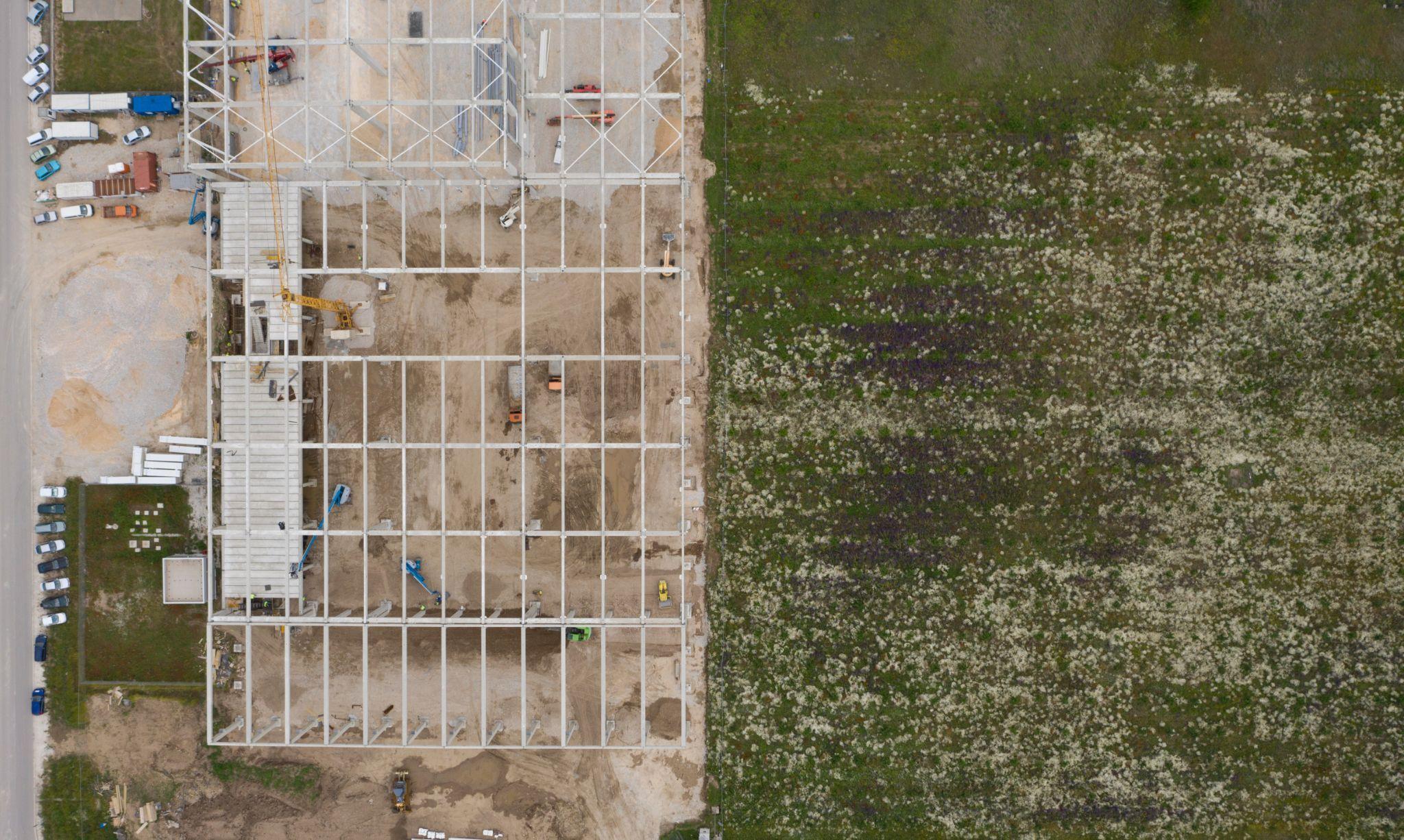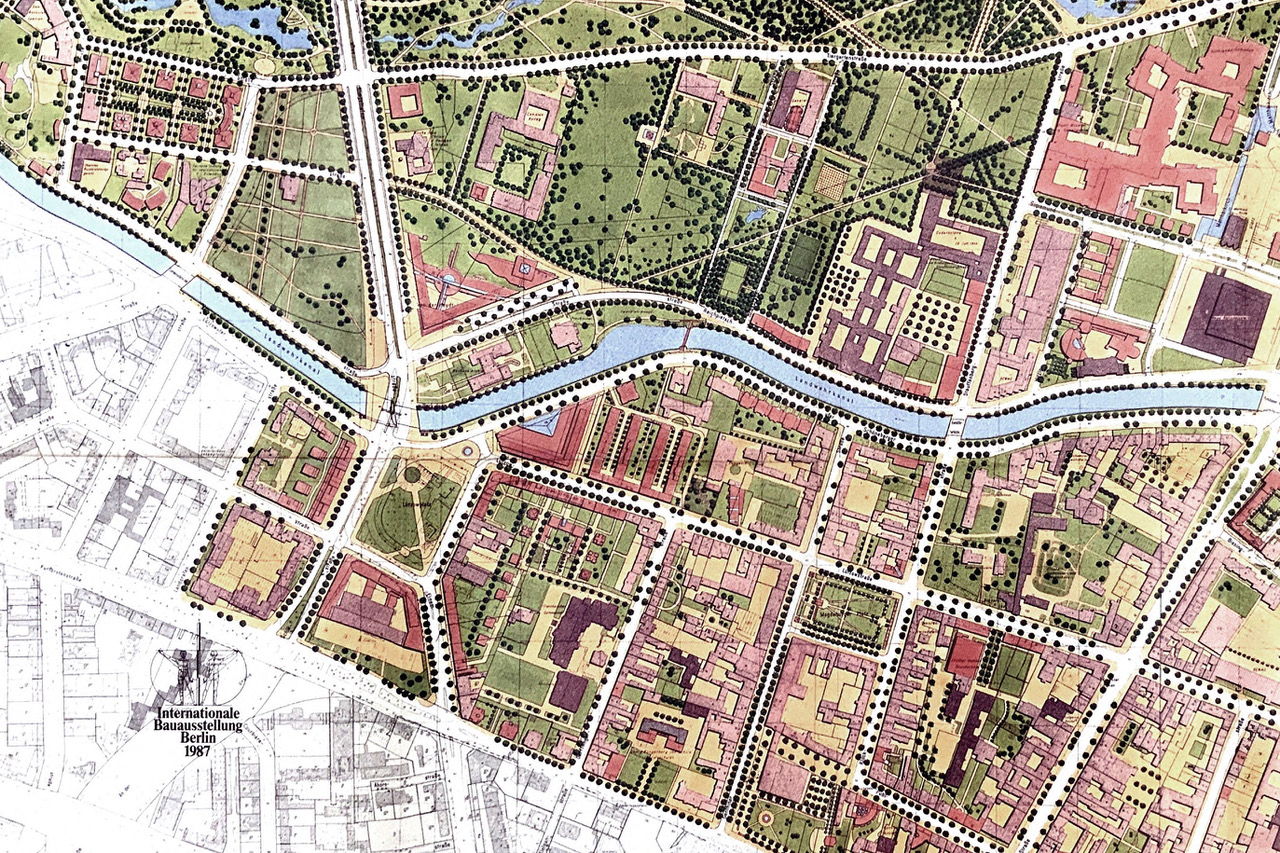PAST TALKS 2022
22 February 2022
A Working City: Re-Description
INA VALKANOVA
ETH Zurich
Respondent: Maroš Krivý (Estonian Academy of Arts / CCA)
![]()
A Working City: Re-Description
Of a Global Operation Through Local Experience.
The Case of Trakia Economic Zone
INA VALKANOVA
ETH Zurich
Respondent: Maroš Krivý (Estonian Academy of Arts / CCA)

Construction
Site of a new car parts supply factory
next to an agricultural land of peach production, Kuklen Industrial Park
next to an agricultural land of peach production, Kuklen Industrial Park
The typology of a special economic zone has been widespread throughout the globe since the 1980s. Landscapes, composed of clusters of large sheds, catered to economic, logistics and manufacturing activities have emerged in almost every country in the world. Most attempts to theorize the special economic zone have focused on its role as a genuine phenomenon of globalization - universal, efficient, and detached. This global design language results in production facilities, designed not through sensitive and careful planning principles but guided by international rules of efficiency, corporate technical prescriptions, and a heavily mechanized workforce. TEZ is the most significant contemporary industrial project in Bulgaria and, as such, a particular example of such global production space.
Even though those spaces are highly automated universal urban economic tools, they perform in diverse landscape and social conditions. The global operation of Trakia Economic both shapes and is being shaped by stakeholders' ambitions, intimate human stories, and multispecies perspectives. The presentation aims to frame a first attempt to narrate a multilayered description of a special economic zone, based not only on the global operation but on the sited experience of various actors.
***
The Microcosm of the City: Typo-Morphological Insights on the Urban Blocks by IBA Berlin 1987
ILARIA MARIA ZEDDA
Rheinisch-Westfälische Technische Hochschule Aachen
Respondent: Alessandro Toti (Bartlett UCL)
![]()
Rheinisch-Westfälische Technische Hochschule Aachen
Respondent: Alessandro Toti (Bartlett UCL)

Detail
of the Urban Development Plan for
Berlin’s Southern Tiergarten by IBA Berlin 1987.
© Kleihues+Kleihues, Source: Baukunstarchiv NRW
Berlin’s Southern Tiergarten by IBA Berlin 1987.
© Kleihues+Kleihues, Source: Baukunstarchiv NRW
From the end of the 1960s, and especially from the 1970s, the urban block returned to play an important role in the international architectural debate. An outstanding opportunity to apply the contents of this debate into practice was offered in the 1980s in West Berlin, on the occasion of the international building exhibition known as IBA (Internationale Bauausstellung) Berlin 1987. The Berlin block played a pivotal role for IBA 1987, both as object of renovation for the department “IBA-Altbau” and as typology of reference for new projects designed by the department “IBA-Neubau”. However, too often the projects built for this exhibition have been presented separately, regardless of the block they belong to, of the relations with the buildings nearby, and of the spaces they define altogether. It is therefore not surprising that knowledge of IBA often limits to single buildings, sometimes merely to some iconic facades. My doctoral thesis aims to remedy the fragmentary state of this narrative and to offer a systemic reading of selected blocks built for the IBA Neubau. Which “idea of urban block” guided the critical reconstruction of West Berlin in the 1980s and which models of blocks resulted from this undertaking? To answer these questions, my dissertation analyses both the theoretical basis of the IBA and selected projects of urban blocks designed for this exhibition. This analysis is pursued not only through texts, but also through critical re-drawings. These re-drawings permit understanding the blocks in their entire complexity considering their typological, morphological, and spatial features. Within this framework, my presentation provides a brief overview of my doctoral research and offers an example of the analyses provided in its graphical chapter. A critical understanding of both strengths and weaknesses of the blocks by IBA Berlin 1987, which my doctoral thesis pursues, can be of use in nowadays practice when we are called – as architects – to meet the needs of today’s society without losing sights of the importance of working in continuity with the past, taking care of the specificities of the place.